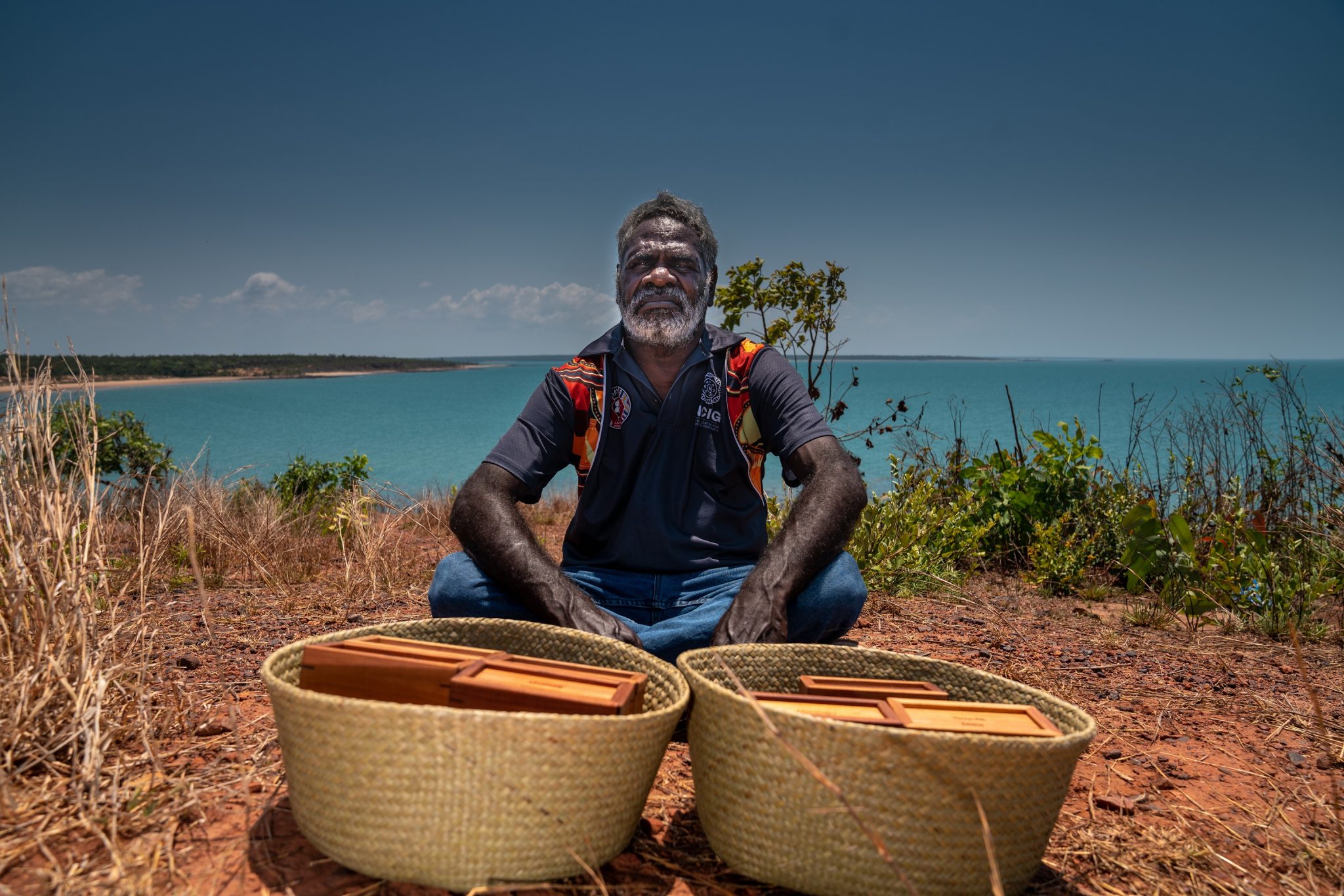
The Australian National University (ANU) will today return over 200 blood samples to the Galiwin’ku community of Elcho Island. Australian Genomics’ Manager Tiffany Boughtwood is representing the Australian Genomics research network at this special burial ceremony today in East Arnhem Land.
We feature some of the story here, with permission of the ANU. To read the full article, please visit the ANU website.
Image: Chairperson of Yalu, and Yolngu man, Ross Mandi Wunungmurra, with the samples on Galiwin’ku.
Photo: Jamie Kidston, ANU Media
Supplied by ANU.
The blood, or manggu in the Yolgnu language, comes from local Indigenous Australians and was collected after a typhoid outbreak on Elcho Island in 1968 and 1969.
Many of the original study participants whose blood was sampled have since passed away.
The samples form part of the 7,000-strong collection in the ANU John Curtin School of Medical Research, which has been under the custodianship of the Indigenous-majority Governance Board of the National Centre for Indigenous Genomics (NCIG).
Under a new management plan, the blood samples of those who have passed away will be repatriated in a special burial ceremony, and commemorated at a formal memorial site.
The people of Galiwin’ku have also given permission for the samples from deceased family to be sequenced, to allow ongoing medical and health research.
Blood samples from those who are still alive, around 400, will be sequenced and then disposed of in Canberra. The DNA information will be added to NCIG’s genome biobank.
NCIG Director Professor Simon Easteal said the Galiwin’ku samples are the largest set from a single community and have the most detailed information about the original study participants.
In 2018, we started consulting with the people of Galiwin’ku to decide the future of the blood samples, which have been housed at ANU for 50 years,” Professor Easteal said.
The samples have been pivotal in advancing health and medical discoveries that have improved the lives of all Indigenous Australians. But Canberra is not their home – and for five decades they have been disconnected from their families and their land.
At ANU, we are firmly committed to long-lasting reconciliation with Indigenous Australians in meaningful ways that are driven by their voices, their priorities and their perspectives.
Together we have established a plan for the future use and management of these important blood samples that will see them finally come home, but which will also deliver important health and medical benefits for the people of Galiwin’ku and all Indigenous Australians.”…
The joint management plan was developed in partnership with the Yalu Marnggithinyaraw Indigenous Corporation (Yalu), a representative community body.
Yalu Aboriginal Corporation were very happy to be able to work with NCIG and the Galiwin’ku community on the repatriation of the manggu samples,” said Yalu Chairperson Ross Mandi.
This is an important day for us and we are looking forward to welcoming home our ancestors.”
This is a historic moment for Galiwin’ku.”
Please continue reading the story on the ANU website.

